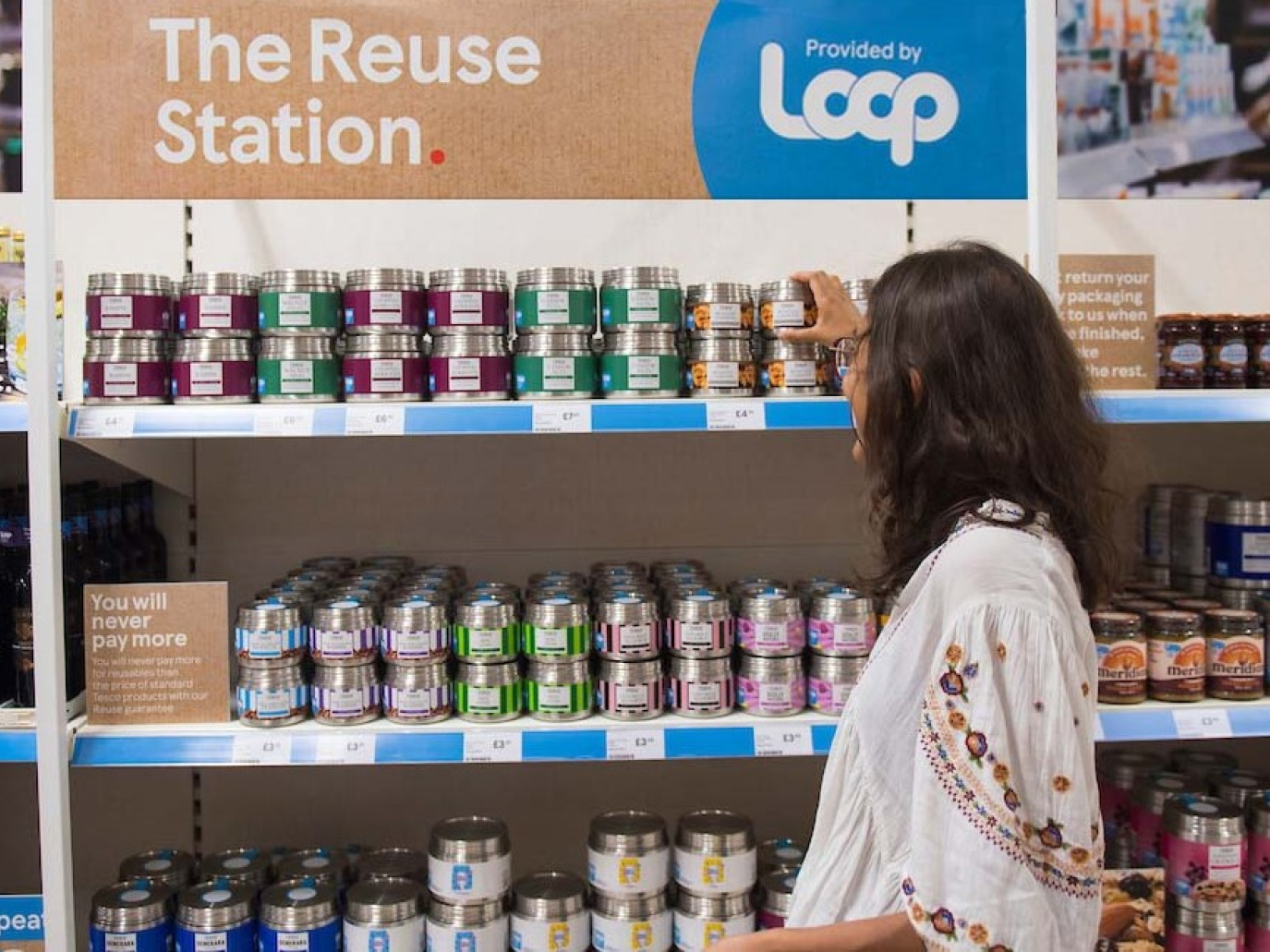The Loop system is a great idea, and it was clear from the start. Large retailers are finally starting to understand it now.
The platform for reusable packaging invented by Tom Szaky, CEO of the American company TerraCycle, is in fact proceeding to conquer supermarket chains and large retailers all over the world, from the United States to Europe, from Asia to Australia. With the motto “Let's get rid of the idea of waste”, it has now landed in Tesco stores in the United Kingdom, in Carrefour supermarkets in France and in Aeon shopping malls in Japan. And now it’s aiming towards fast-food chains.
Closing the packaging loop
Szaky's idea is simple and ingenious at the same time: creating a widespread and standardized system of reusable containers, which the consumers themselves collect and return. The methods of return can be varied, but all designed to be as convenient and fast as possible. If you shop at a supermarket with a “Loop station”; for example, all you have to do is bringing the empty containers back to the store and receive back the small deposit amount you paid. Loop will then take care of collecting all used containers, sterilizing them and putting them back into circulation. The same goes for online purchases: Loop provides a box or bag to collect the empty containers and will then take care of picking them up.
The difference with traditional Deposit Return Systems is that there are no fees charged to the government. It all rests on private agreements between the platform, manufacturers and retailers. Szaky's company, in essence, sells “packaging as a service.” And this brings a series of advantages, beginning, of course, with environmental ones, with the elimination of the idea of waste, but it doesn’t stop here. Designing containers that last over time and can be reused hundreds or thousands of times means giving design an extra boost. As Szaky explained when announcing the agreement with American cosmetics company Ulta Beauty a few months ago, “Rethinking packaging gives the industry the opportunity to create new, luxurious designs that are also sustainable”. In short, pretty things instead of disposable wrappers destined to end up in a landfill: an evolution in what marketers call the “consumer experience”.
A standard making its way into supermarkets around the world
The strength of the Loop system has been, since the beginning, aiming for the standard. As Szaky explained to Renewable Matter in an interview a couple of years ago: "People prefer to aggregate to the standard, kind of like Facebook would be the standard for social media”.
It goes without saying that to become the standard in a global economy, you need to get out of your national borders. And that's what Loop has done, starting in the US and striking deals with manufacturers and retailers everywhere.
In the past year in particular, several supermarket chains, hypermarkets, convenience stores and shopping malls have come on board.
From October, for example, the supermarkets of the Fred Meyer chain in Oregon will inaugurate Loop aisles, in which common products such as soaps or groceries will be sold in reusable packaging. In the French Carrefour stores – also aided by an excellent anti-waste law – the system has already been launched at the end of 2020, while the shopping malls of the Aeon chain in Japan have adopted it since May 2021. By next year, American pharmacy and wellness store chain Walgreens and Australian supermarkets Woolworths will also join Loop. In the meantime, agreements have already been announced to test the system in the realm par excellence of disposable packaging, fast food: Burger King and McDonald's, in some of their restaurants, will give customers the opportunity to choose burgers and drinks in reusable containers.
Finally, British supermarket chain Tesco, among the most popular chains in the world, has just introduced the Loop system in ten of its UK stores, which will sell as many as 88 different products in reusable packaging. Tesco has calculated that if customers in these 10 supermarkets switched to buying even just three of the best-selling products – Coca-Cola, Heinz Tomato Ketchup and Ecover detergents – in their reusable packaging versions, the containers would be reused more than 2.5 million times a year.
If the standard were to catch on globally, as its inventors are convinced, it could really prove to be the solution to our problems of over-packaging and single-use plastic pollution.



